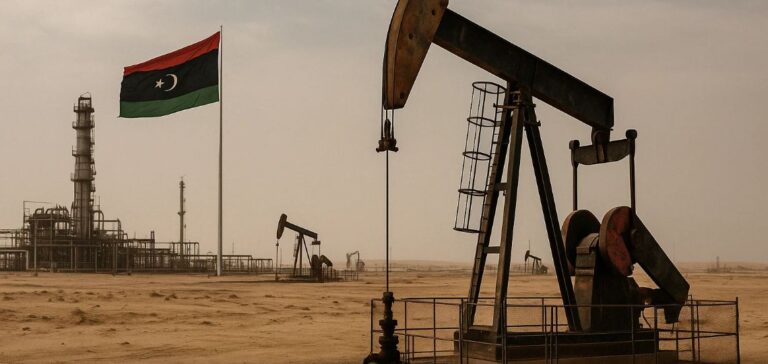Libya, with its oil resources accounting for around 3% of the world’s proven reserves, could experience an economic recovery in 2025, supported by increased oil production. According to a statement released on April 16 by the International Monetary Fund (IMF) following a mission in the country, this recovery could translate into significant growth in Gross Domestic Product (GDP). In 2024, oil and gas continued to dominate the Libyan economy, accounting for nearly 68% of GDP, 97% of exports, and more than 90% of fiscal revenues, according to the African Development Bank (AfDB).
However, this outlook remains uncertain without a deep revision of economic policies and diversification of economic sectors. The IMF stressed that the country’s heavy reliance on hydrocarbons exposes Libya to risks associated with fluctuations in global oil prices and internal tensions, as demonstrated by recent violence at the Zawiya refinery. Political stability, still fragile, remains a crucial factor for sustained growth. Thus, while the AfDB projects a growth rate of 6.2% for 2025, this will largely depend on the stability of oil and gas prices and production.
The structural challenges of the Libyan economy
Despite the growth outlook, the IMF warns that Libya’s current economic situation remains too vulnerable to allow for effective diversification. The country suffers from weaknesses in non-hydrocarbon activities, a lack of financing, and ineffective regulation. This climate of uncertainty, coupled with sustained public spending, hinders the development of the private sector. Furthermore, the absence of reforms in key areas such as subsidies, governance, and support for the private sector undermines the economy’s effectiveness.
A call for fiscal and budgetary reforms
Long-term growth prospects for Libya remain closely tied to political and economic reforms. The IMF has stressed the need for significant budgetary reforms to stabilize public finances and ensure long-term economic viability. The international institution emphasized that it is crucial to reform the wage and subsidy system, as well as promote revenues outside the oil sector. These efforts would be essential for attracting foreign investments and increasing crude oil production, thereby strengthening the Libyan economy in the face of global challenges.






















